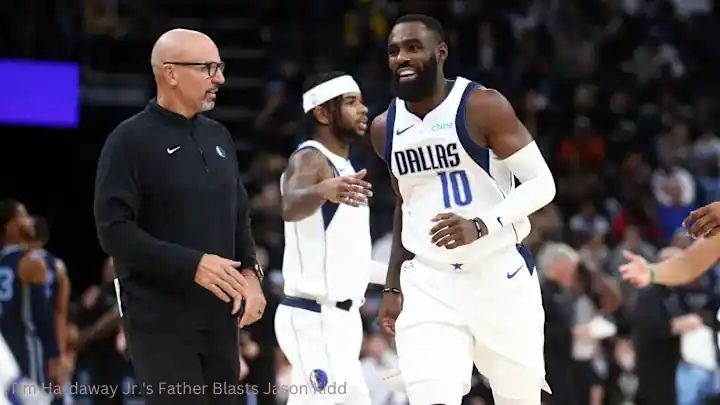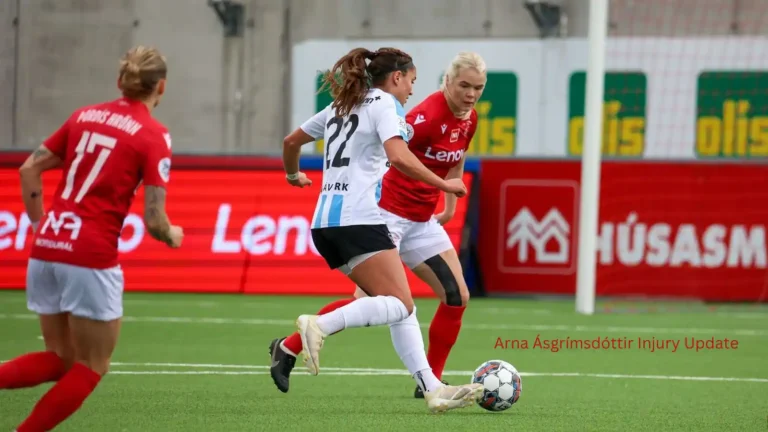
Introduction to the situation
Tension is heating up in the NBA, and it’s not just on the court. Recently, Tim Hardaway Jr.’s Father Blasts Jason Kidd has stepped into the spotlight with some fiery comments aimed at Jason Kidd. The former player turned coach has found himself under scrutiny, and this unexpected backlash raises questions about coaching styles and team dynamics. As family loyalty clashes with professional critique, fans are eager to see how this will unfold. What exactly did Hardaway Sr. say? And what does it mean for both his son and the Dallas Mavericks? Buckle up; it’s going to be an interesting ride through these unfolding events!
Who is Tim Hardaway Jr.’s father?
Tim Hardaway Jr.’s Father Blasts Jason Kidd, Tim Hardaway Sr., is a former NBA star who made his mark in the league during the 1990s. Known for his dazzling ball-handling skills and quickness, he played a pivotal role in transforming point guard play.
Hardaway Sr. had standout seasons with the Golden State Warriors and later played for teams like the Dallas Mavericks and Miami Heat. His signature move, the “UTEP Two-Step,” became iconic among basketball fans.
Beyond his playing career, Hardaway Sr. has also taken on coaching roles, emphasizing fundamentals and player development. His experiences have shaped how he views current NBA dynamics.
As a father, he has been an influential figure in Tim Jr.’s life, guiding him both on and off the court through mentorship rooted in passion for basketball.
The altercation between Hardaway Sr. and Jason Kidd
Tensions flared recently when Tim Hardaway Sr. publicly criticized Jason Kidd, the head coach of the Dallas Mavericks. The former NBA star didn’t hold back in expressing his frustrations regarding how Kidd managed his son’s playing time and role on the team.
Hardaway Sr. reportedly felt that Tim Jr.’s potential was not being fully utilized under Kidd’s coaching style. His comments sparked a wave of conversations around player treatment and accountability within teams.
This outburst wasn’t just about one father defending his son; it highlighted deeper issues at play in professional basketball. Parents often become fierce advocates for their children, especially when they believe those children are being mismanaged or undervalued.
The altercation has drawn attention to the relationship dynamics between coaches and players—especially when family members get involved in discussions about performance and strategy.
Criticism of Kidd’s coaching style
Jason Kidd’s coaching style has drawn mixed reviews from players and analysts alike. Critics have pointed out a lack of clear strategy during crucial moments in games. Instead of fostering growth, some feel his approach stifles player creativity.
Many believe that effective coaching requires adaptability. Kidd appears to stick rigidly to certain tactics without considering the unique strengths of individual players. This can lead to frustration among team members who thrive on freedom and improvisation.
Moreover, communication seems to be an issue as well. Players often express confusion regarding their roles on the court. When expectations are unclear, it hampers performance and undermines confidence.
The repercussions go beyond individual games; they affect team morale too. A disconnect between coach and players could spell trouble for overall chemistry within the squad moving forward.
Relationship between players and coaches in the NBA
The relationship between players and coaches in the NBA is a crucial element for team success. Trust and communication are foundational. When both parties understand each other’s strengths and weaknesses, it leads to better performance on the court.
Coaches provide strategies, while players execute them. However, this dynamic can be complex. A coach’s approach can either inspire or demoralize a player.
Moreover, personal connections matter significantly. Coaches who take the time to build rapport often see greater loyalty from their athletes. Conversely, a lack of understanding can create tension.
In high-pressure environments like the NBA, egos may clash. Disagreements are common when goals don’t align or expectations aren’t met. Navigating these relationships requires skill and empathy from coaches.
Successful teams thrive on mutual respect between coaches and players—a delicate balance that’s not always easy to maintain in such a competitive landscape.
Impact of Hardaway Sr.’s comments on the team
Tim Hardaway Sr.’s comments have undoubtedly stirred the pot within the Mavericks organization. His candid criticism of Jason Kidd’s coaching style has sparked conversations among fans and analysts alike.
For players, this kind of public scrutiny can create tension. It places a spotlight on the relationship between them and their coach. Some might feel caught in the crossfire, unsure of where to align themselves.
Moreover, such remarks could impact team morale. If players sense unrest or division, it can affect performance on the court. The last thing any team needs is distractions during crucial games.
On a broader level, Hardaway Sr.’s words may prompt discussions about accountability and support within coaching dynamics. The way forward now hinges on how both coaches and players respond to these criticisms moving forward.
Conclusion: Importance of effective communication in sports teams
Effective communication is the backbone of any successful sports team. The recent comments from Tim Hardaway Jr.’s Father Blasts Jason Kidd regarding Jason Kidd’s coaching style highlight just how crucial it is for coaches and players to be on the same page. When misunderstandings arise, they can create tension that hampers performance.
In high-pressure environments like the NBA, where every game matters, clear dialogue fosters trust and respect between players and coaches. Coaches need to convey their strategies effectively while also being receptive to player feedback. This two-way street allows for growth both individually and collectively as a team.
Tim Hardaway Sr.’s statements serve as a reminder that everyone involved has a stake in creating an environment conducive to success. Open lines of communication can help mitigate conflicts and improve overall morale within the locker room.
Taking steps toward better communication could lead teams towards greater achievements on the court. It’s essential not just for winning games but building lasting relationships among all members of the organization.





